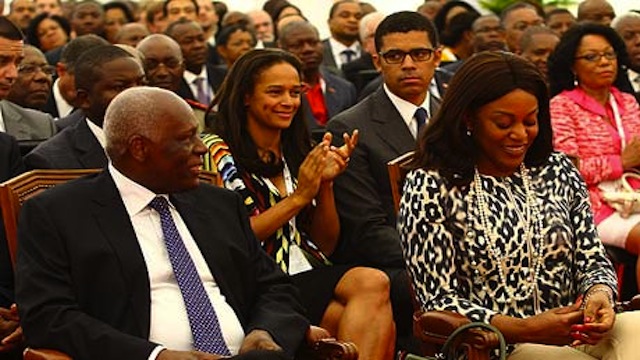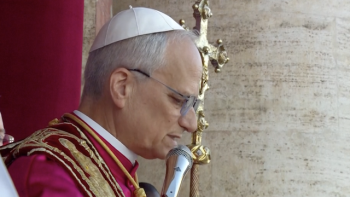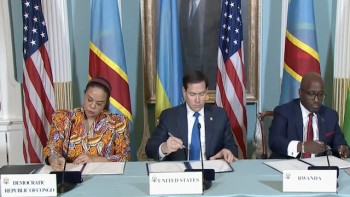Two major events in Africa over the last two weeks appear to signal the dawn of a new era. First, the event much publicized: Zimbabwe's Robert Mugabe resigned as a President following a bloodless stance against him by his former comrades and freedom fighters in the movement of the Zimbabwe independence. Second, the quiet event in Angola, but significant enough to be comparable to what happened in Zimbabwe.
On November 21, 2017, Angola's new President Joao Lourenco took action that may be so significant that Angolans hailed it as the beginning of a revolution. He sacked the feared police boss and the intelligence chief, after removing, a week earlier, Isabel dos Santos, Jose Eduardo Santos' s daughter as the head of the state oil firm. Ambrósio de Lemos, the Commander General of the National Police, was replaced by Alfredo Mingas. Apolinário José Pereira took over the Chief of the Intelligence Service and Military Security position from António José Maria. President Joao Lourenco replaced Isabel with an official she had fired previously.
Meanwhile, President Joao Lourenco has started to release most political prisoners jailed under Dos Santos.
On February 8, 2017, AfroAmerica Network had pointed out the hopes and potential challenges of the transition in Angola, after 37 years of Dos Santos' reign (see: AfroAmerica Network: Dos Santos' Angola: Another Potential Democratic Transition in Africa)
Rights groups and independent observers had accused President Jose Eduardo Dos Santos of personalized and autocratic rule and sometimes of corruption, after his daughter Isabel dos Santos was appointed head of the state oil company, Sonangol and his son, Jose Filomeno, as the chairman of Angola's sovereign wealth fund.
The businesswoman and investor Isabel Dos Santos is considered by Forbes to be the richest woman in Africa and was then viewed as the most powerful and richest woman in Angola. She owns several businesses in Angola, Portugal, and the Netherlands.
Hence, several critics contacted by AfroAmerica Network had wondered whether, with Jose Eduardo Santos out, Angola was entering the after Dos Santos' dynasty period or rather a transition towards a new Dos Santos' era. President Joao Lourenco, nicknamed "JLo", was hand-picked by then President Jose Eduardo Dos Santos to replace him. He won presidential elections, and was viewed as the continuation of the Dos Santos' legacy.
Some sources have told AfroAmerica Network that the removal of Isabel Dos Santos from a highly visible post in Angola appears to be also motivated by unfolding situation in another country. Isabel Dos Santos's husband, Sindika Dokolo, is from a wealthy family from the Democratic Republic of the Congo (DRC) but lives in a self imposed semi-exile in Europe. In July 2017, he was sentenced to jail for fraud in the Democratic Republic of Congo. He said the case was politically motivated, especially after openly criticizing the DRC President Joseph Kabila and supporting the opposition leader Moise Katumbi. In late 2016, President Eduardo Dos Santos distanced himself from DRC President Joseph Kabila following Joseph Kabila's reluctance to step down after his two-terms expired. Angola eventually withdrew the troops that were protecting Joseph Kabila (see AfroAmerica Network - DR Congo: Angola withdraws troops as Joseph Kabila brings in Rwandan special forces to Kinshasa).
In August 2017, Sindika Dokolo launched his own political movement, known as "Les Congolais Debout" or "Congolese, Stand-up". Hence the speculations that the removal of his wife from a top position in Angola is part of the plan of getting ready to play a major political role in the DRC; a role he may not play if his wife remains an important figure in Angola.
Whether the speculations are true or not, Angola, like Zimbabwe appear to be embarking on a new path, hopefully a path of change towards true democracy in Africa.

















